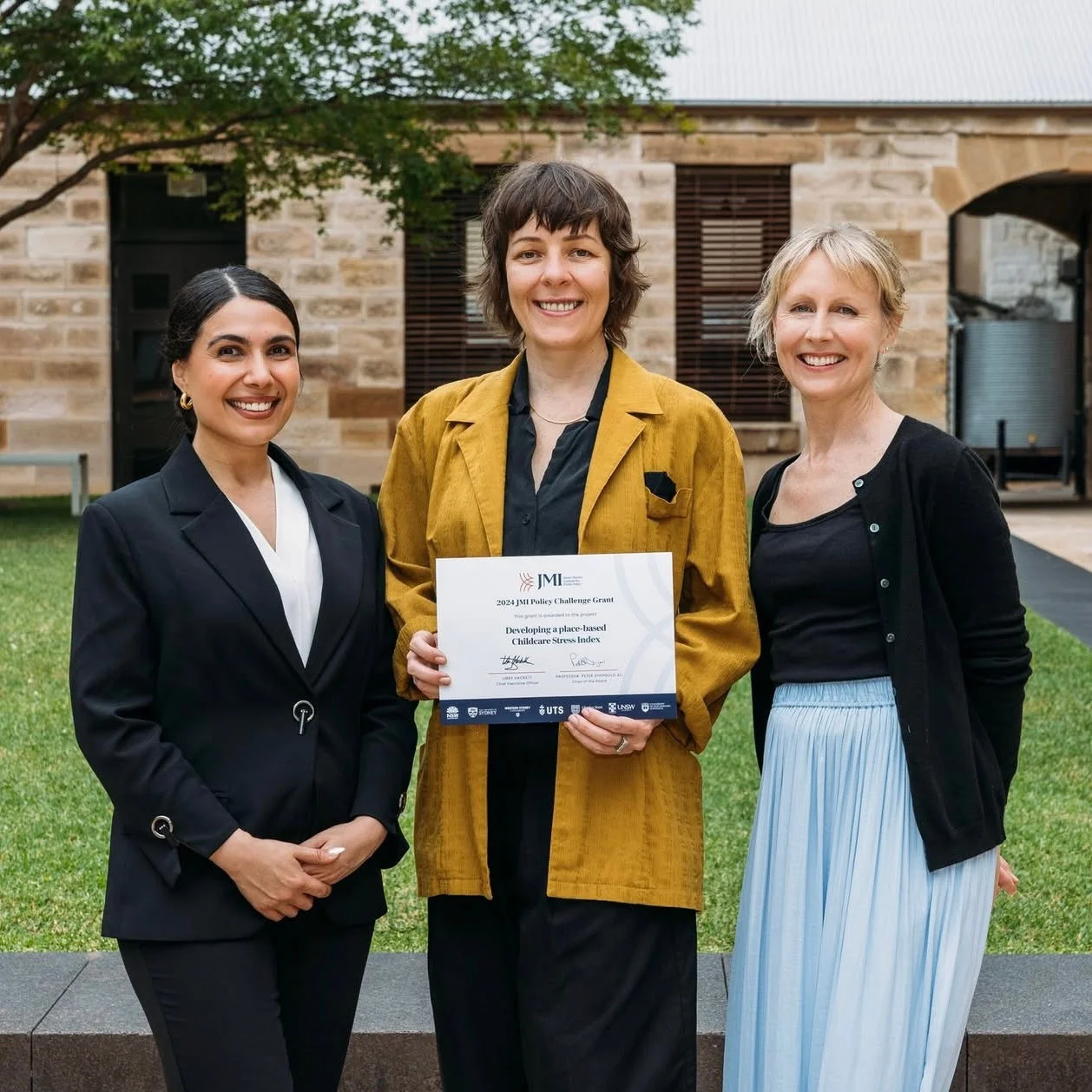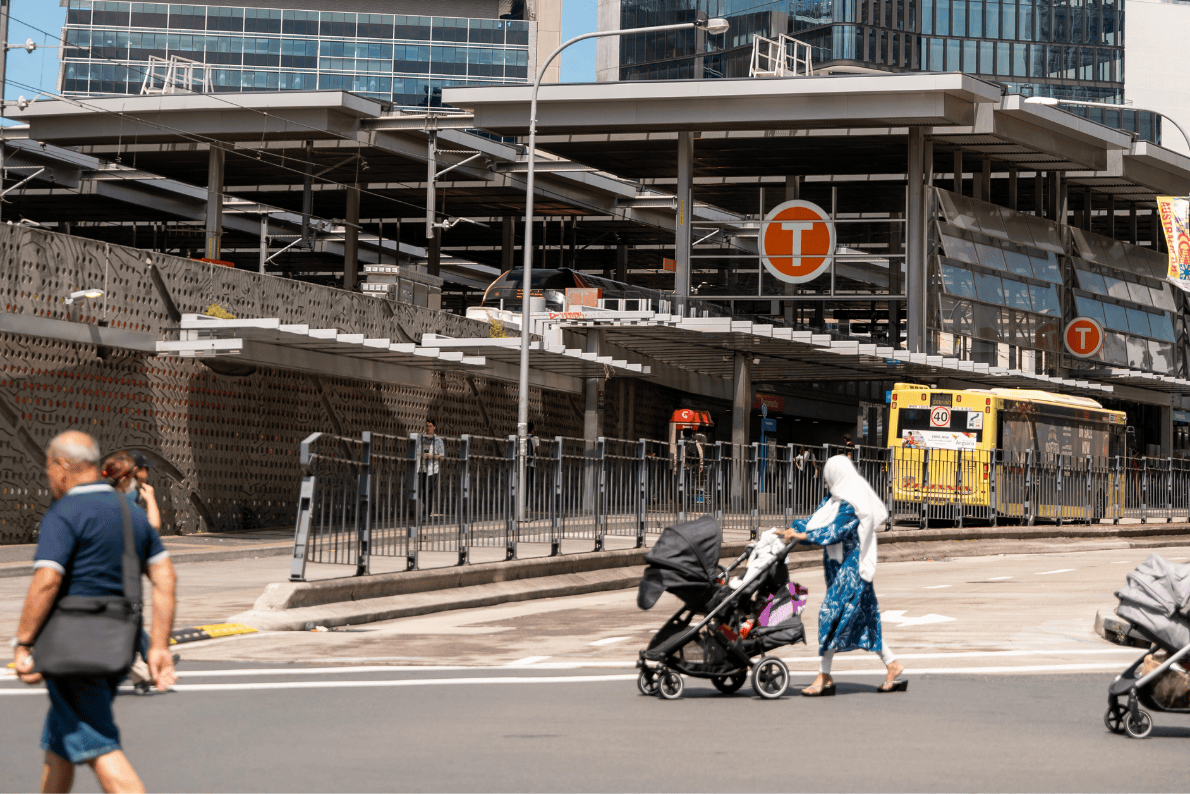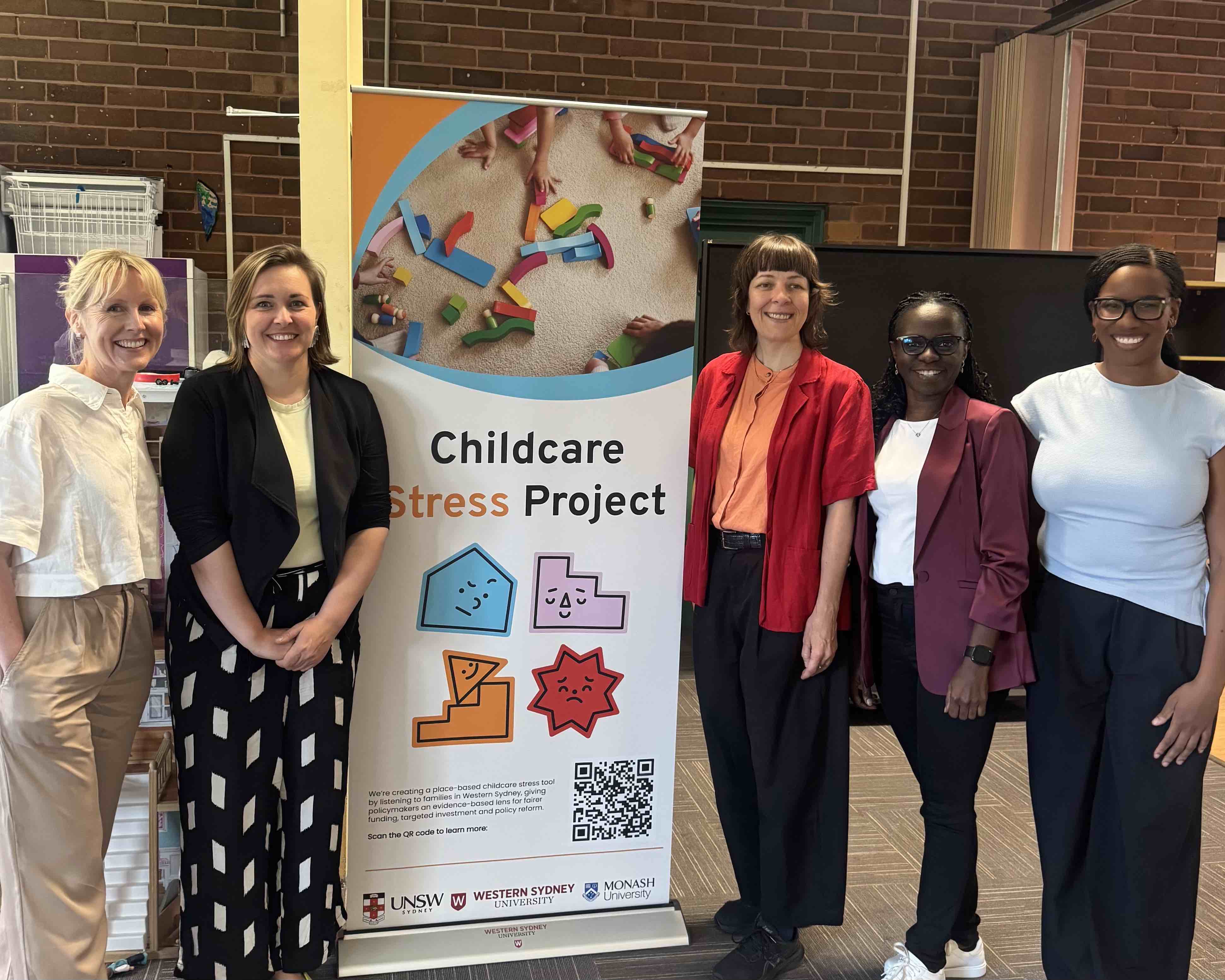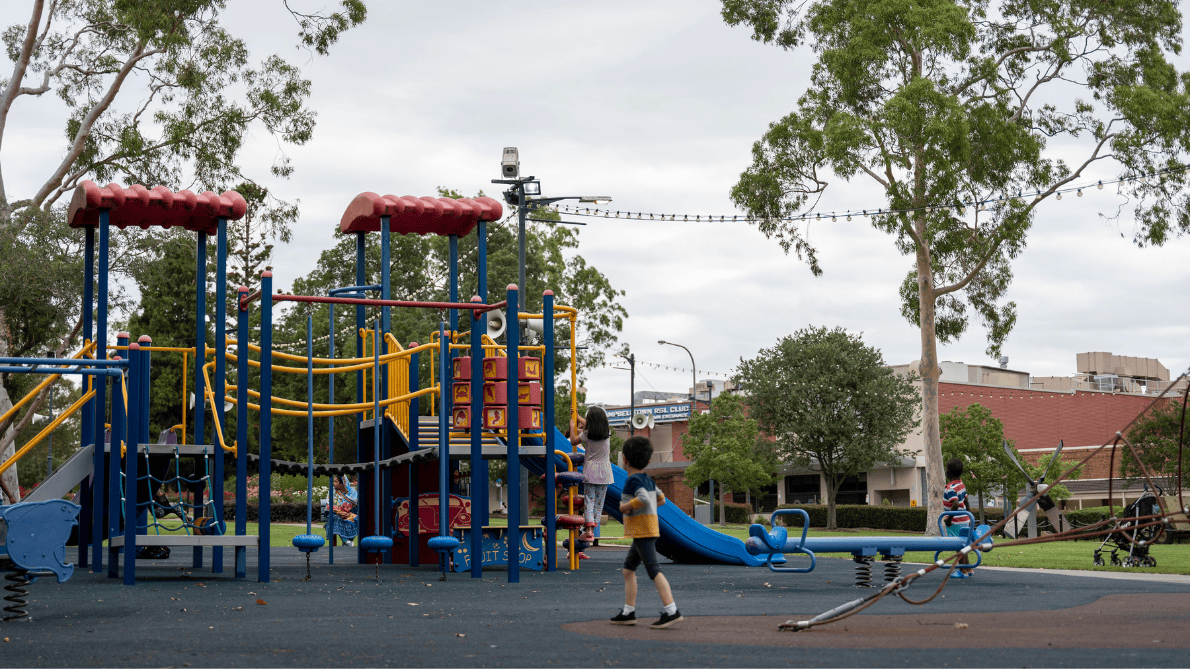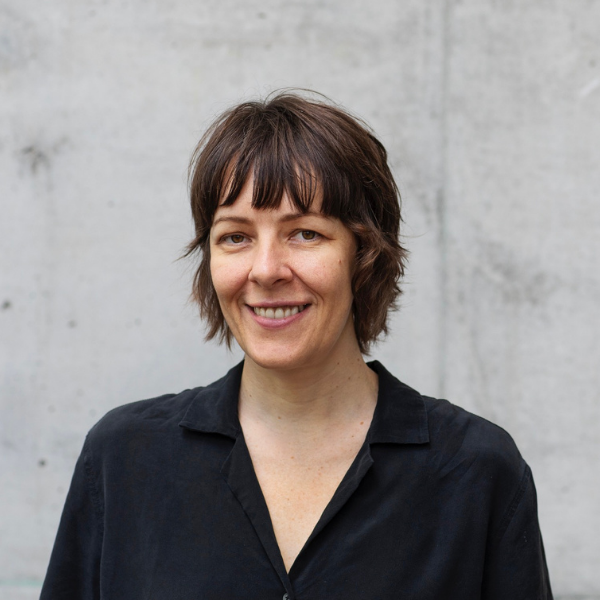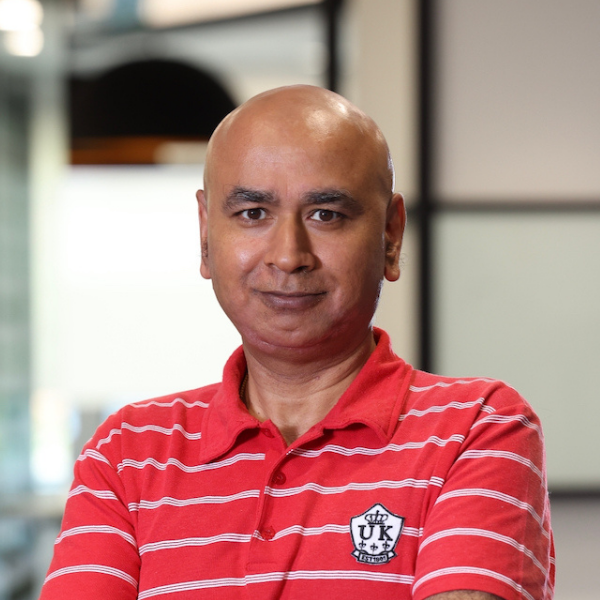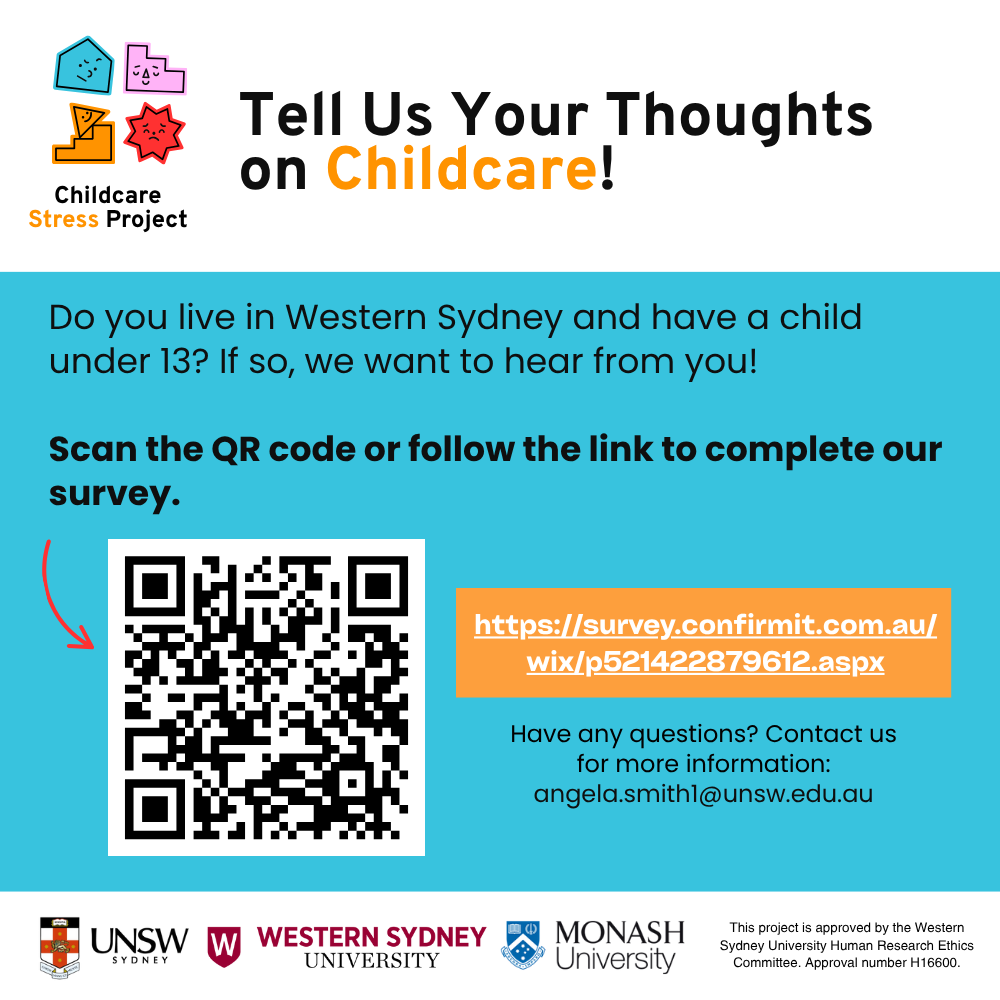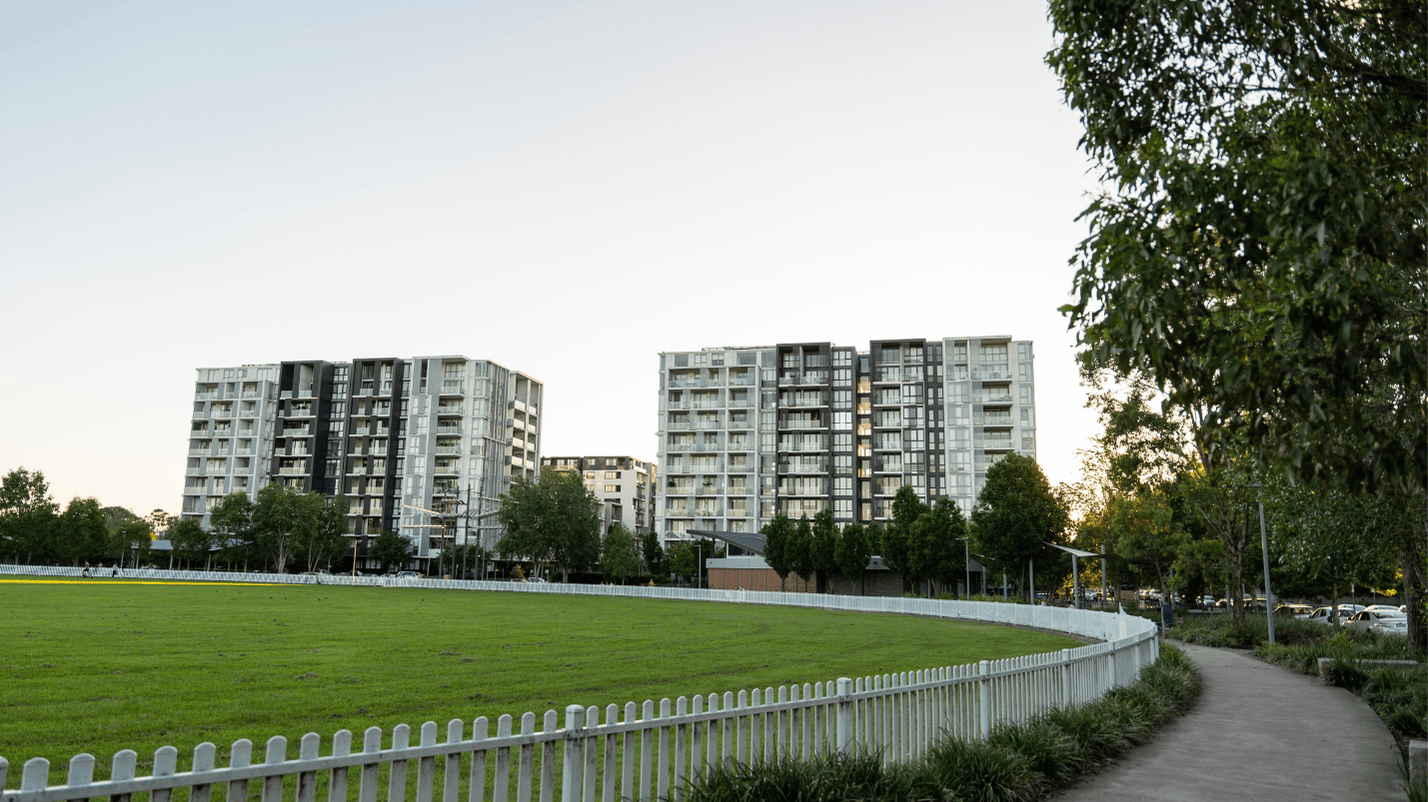The Childcare Stress Project
Childcare is a big part of family life, but for many people, it’s also a source of stress. Our project is about listening to families and understanding what childcare looks like for you – the challenges, the pressures, and the ways it affects your everyday life.
With support from the Australian Public Policy Institute, we are developing a new Place-Based Childcare Stress Index. Starting right here in Western Sydney, the Index will map what childcare stress is, where families are experiencing it the most, and what causes it. By sharing your story, you’ll be helping to create a tool that can guide better policy and make a real difference for families.
About the Project
Mission Statement:
The Place-Based Childcare Stress Index offers policymakers an equity-oriented lens to identify and respond to acute childcare stress. Grounded in the lived realities of diverse families, it highlights how structural and place-based barriers shape access to early childhood education and care. The aim of the tool is to enable fairer resource allocation, targeted investment, and policy reform that addresses the complex factors driving intergenerational inequities.
What do we know about ‘Childcare Stress’?
Childcare in Western Sydney highlights structural inequities in access to high-quality and affordable early learning and care in one of the country’s most diverse and rapidly growing regions. When ECEC systems fail to meet the needs of families, it entrenches intergenerational injustice, limits women’s workforce participation, and affects children’s development. Measuring childcare stress through a place-based lens will enable more equitable and targeted policy responses that reflect the realities of diverse communities and geographies.
Research Advisory Group
The Childcare Stress Project is guided and supported by a Research Advisory Group (RAG). The RAG plays an essential role by providing expert guidance, reviewing key outputs, ensuring research relevance, and strengthening partnerships. The RAG includes individuals from relevant NSW government departments, local government, NGOs and community organisations. Throughout this project, we consult with and are guided by input from NSW Treasury, NSW Education, local government in Western Sydney, community organisations, advocates and First Nations advisors in ECEC.
About Us
Dr Angela Smith is a human geographer who brings more than a decade of industry experience working with diverse communities and organisations. As part of her political geography work, Angela undertakes place-based research in Western Sydney aimed at addressing spatial and class inequities across Sydney. Angela is a Lecturer in the School of Humanities and Languages at UNSW and previously worked at the Centre for Western Sydney at Western Sydney University.
Dr Jenna Condie is a social researcher and Senior Lecturer in Digital Society at Western Sydney University with nearly 20 years of experience conducting social research with people and communities experiencing marginalisation. Her research practices are underpinned by principles of equity and justice, bridging academic research with on-the-ground organising to address pressing social issues and contribute directly to social movements.
Professor Kate Huppatz is Interim Deputy Dean, Research (School of Social Sciences), and Research Lead of SAGE/Athena Swan at WSU. She specialises in the study of gender (especially women and girls), labour, care and occupations. Her recent empirical research has explored gendered violence in workplaces and relationships, labour mobility programs and care in the Pacific, and economic inequalities for Western Sydney women, having impact on policy and practice.
Dr Nagaddya is a Senior Lecturer in Social Work and Communities at Western Sydney University. She is experienced in mixed research methodologies and co-design approaches to research. Her work on precarity and precariousness within changing economies foregrounds the voices of marginalised populations, particularly migrants, older people and children living within disadvantaged geographies. She adopts a capability and place-based approach to well-being and inclusivity.
Associate Professor Sriram Shankar is an applied economist whose research spans environmental economics, macroeconomics, labour economics, and applied econometrics. His work is grounded in both theoretical and empirical analysis, with a strong emphasis on addressing real-world challenges and informing public policy.
Dr Rhonda Itaoui is a leader in higher education, research, and strategic advocacy, with a strong commitment to equity and inclusion. She spearheads evidence-based research and policy initiatives that address the unique challenges and opportunities facing Western Sydney, driving sustainable, community-centred growth. Her expertise lies in the geographies of equity, diversity and multiculturalism — a focus shaped by years of local and international research, deep community engagement, and a passion for place-based justice.
Angelica Ojinnaka-Psillakis is a PhD candidate, social and health researcher, and producer. She drives advocacy, research and creative projects on access and participation, social development and inequality, children and young people’s wellbeing, violence, intersectionality and marginalisation. She was the 2022 Australian Youth Representative to the United Nations and advises organisations including UNESCO, Sydney Women’s Fund, and the Centre for Adolescent Health.
Complete Our Survey
Have you ever had to cut work hours because of childcare costs, struggled to find a spot in daycare, or felt like childcare was just too expensive or too difficult to access?
We want to hear about your perspectives of childcare in the Western Sydney region in an online survey. Your experiences will shape understandings of childcare stress and build a measurement tool to help improve policy on childcare.
Share the survey!
Publications
Check out these external resources that members of our team have contributed to:



